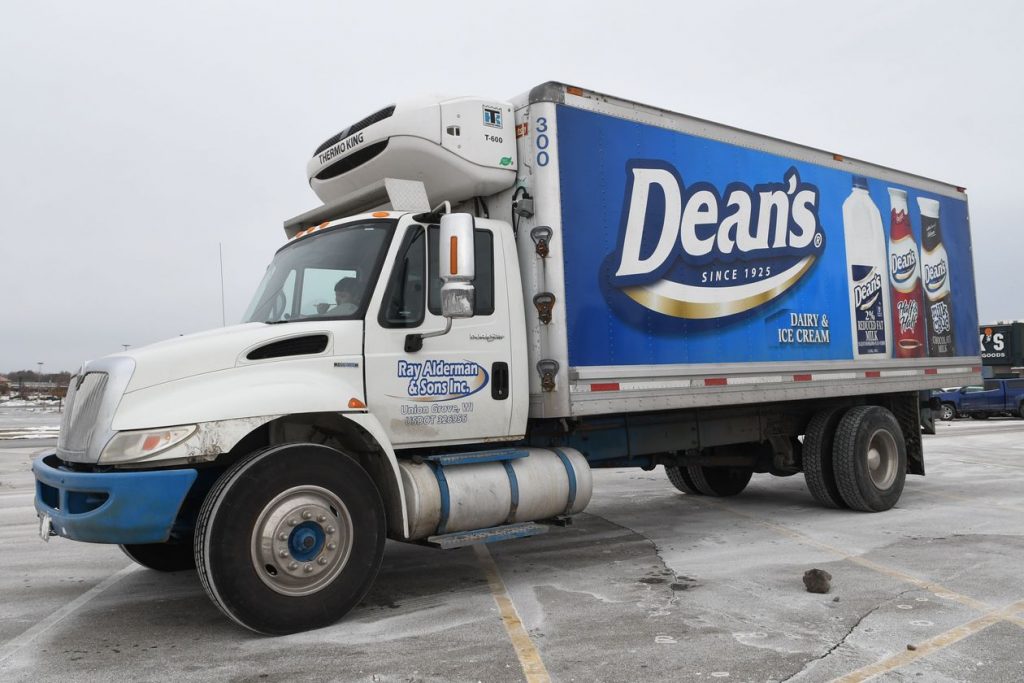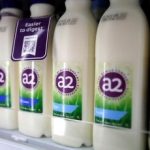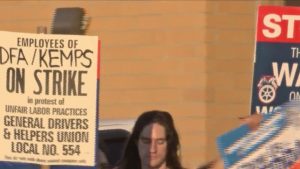
Numerous U.S. dairy cooperatives have filed court documents objecting to a Dean Foods bankruptcy proceeding motion related to the sale of a majority of assets to Dairy Farmers of America (DFA).
In February, DFA and Dean Foods announced an agreement for the farmer-owned cooperative to acquire a substantial portion of Dean’s assets and business for a base purchase price of $425 million. Under the agreement, DFA becomes the “stalking horse bidder” to acquire 44 of Dean’s facilities and associated direct store delivery system, as well as certain corporate and other assets and functions. The court was scheduled to consider a motion on the agreement on March 12.
According to a simple legal definition, a stalking horse bid is an initial bid on the assets of a bankrupt company. The bankrupt company can choose the stalking horse bidder, which sets the low bar for any other bids. At that March 12 hearing, the judge will determine if DFA will be the stalking horse bidder and will set up guidelines for bidding and a potential auction auction.
On March 9, an ad hoc committee made up of representatives from several dairy co-ops filed a limited objection regarding DFA being designated as the stalking horse bidder, the Dean Foods/DFA asset purchase agreement (APA), as well as bidding schedules and other procedures.
According to the court document, the potential sale of Dean assets to DFA “would effectively consolidate DFA’s grip on the national milk market. The ripple effects of the sale will detrimentally impact all of DFA’s competitors, from the largest dairy cooperatives and milk producers, to the smallest farmers.”
“By purchasing the stalking horse assets, DFA can essentially preclude its competitors from selling their milk to Dean Foods – one of the largest purchasers in the nation. In turn, a dairy farmer or cooperative’s ability to meet the minimum federal order requirements and receive the benefits of the pooling programs could be severely impacted,” it stated.
In its objection, the committee also cited potential antitrust issues should DFA purchase 44 of 57 Dean facilities outlined in the APA, with the risk that the sale will be denied, in whole or in part. Given the size of the APA, the co-ops note there would be few, if any, other bidders for the entire package of facilities.
The docket from the ad hoc committee asks the court to deny designating DFA as the stalking horse bidder, or alternatively, modifying bidding procedures to create a dual-track auction process. As described, that process would provide for backup successful bidders and backup alternate bidders for individual auction lots in the event that the Department of Justice (DOJ) does not provide the necessary regulatory approval for the sale to DFA.
The ad hoc committee represents a broad cross-section of U.S. dairy cooperatives, collectively representing more than 3,000-member dairy farms who produce nearly 10% of the U.S. milk production. Co-ops listed in the objection were:
Lone Star Milk Producers Inc., with 120-member dairy farms located in eight states – New Mexico, Texas, Kansas, Oklahoma, Louisiana, Mississippi, Arkansas and Georgia. During 2019, Lone Star’s member dairy farms produced approximately 1.9 billion pounds of milk, making it the 17th largest dairy farmer cooperative in the U.S.
Agri-Mark Inc., with 850-member dairy farms throughout New England and New York state. Agri-Mark’s member dairy farms produce approximately 3.3 billion pounds of milk annually, making it the 15th largest dairy farmer cooperative in the U.S.
Cayuga Marketing LLC, with 30 member farms in New York state producing about 1.3 billion pounds of milk annually. Cayuga ranks 24th among the nation’s largest dairy farmer cooperatives.
Cobblestone Milk Cooperative Inc., with 19 member farms spanning from Virginia to Georgia. Ranking in top 35 dairy cooperatives in the country by volume, Cobblestone markets 0.6 billion pounds annually.
Maryland & Virginia Milk Producers Cooperative Association Inc., with 930 members, from Pennsylvania down to Georgia, producing 2.5 billion pounds of milk annually, making it the 13th largest dairy farmer cooperative in the U.S.
One co-op represented on the committee, Michigan Milk Producers Association (MMPA), abstained from joining the objection. MMPA serves 1,300 dairy farmers in Michigan, Indiana, Ohio and Wisconsin. It processes and supplies over 5 billion pounds of milk annually, ranking sixth among the largest dairy cooperatives in the U.S.
In separate dockets, Maryland & Virginia Milk Producers Cooperative Association Inc. and Southeast Milk Inc. (SMI), filed additional objections. At the time of the Chapter 11 bankruptcy petition, Dean owed SMI more than $7.16 million, with about 80% of that for milk supplied to Dean by SMI.
According to SMI, with approximately 130-member dairy farm and the largest dairy cooperative in the southeast U.S., “the proposed bid procedures and protections given to DFA are unfair, biased, rushed and show favoritism towards DFA compared to other possible bidders.”
SMI further objected to a breakup fee of $15 million plus an $8 million reimbursement payment to cover cost that would be owed by Dean to DFA if Dean selects a different buyer, saying those fees would chill acceptance of other bids.
“We recognize that there are a lot of parties interested in the outcome of this hearing – for many different reasons,” said Monica Massey, executive vice president and chief of staff, DFA. “While some are concerned about their own financial stake, we are focused on protecting and preserving family farms across the country. Our main focus has always been to maintain milk markets and limit the disruption to the industry.
“No matter what [the March 12 hearing] outcome, we believe that we have reached a deal that is fair and reasonable for all and that will ultimately benefit all dairy farmers, as no one has a greater interest in preserving and expanding milk markets than we do,” she said.
Based on a previously announced timeline under the motion, the deadline for interested parties to furnish information to be considered a potential competing bidder for any or all assets identified in the DFA-Dean agreement, or to be considered a potential bidder for assets not part of the agreement, is currently scheduled for March 31.
The deadline for potential bidders to submit qualified competing bids for either assets covered under the agreement, or those outside the agreement, is April 13. If there are competing bids, an auction would be held sometime in April. A hearing to approve the sale would be held April 27.























